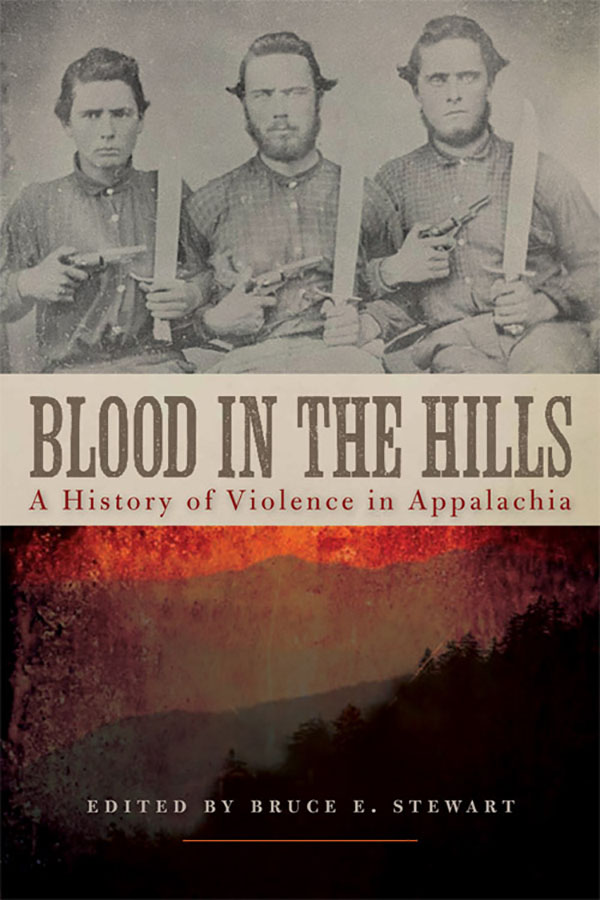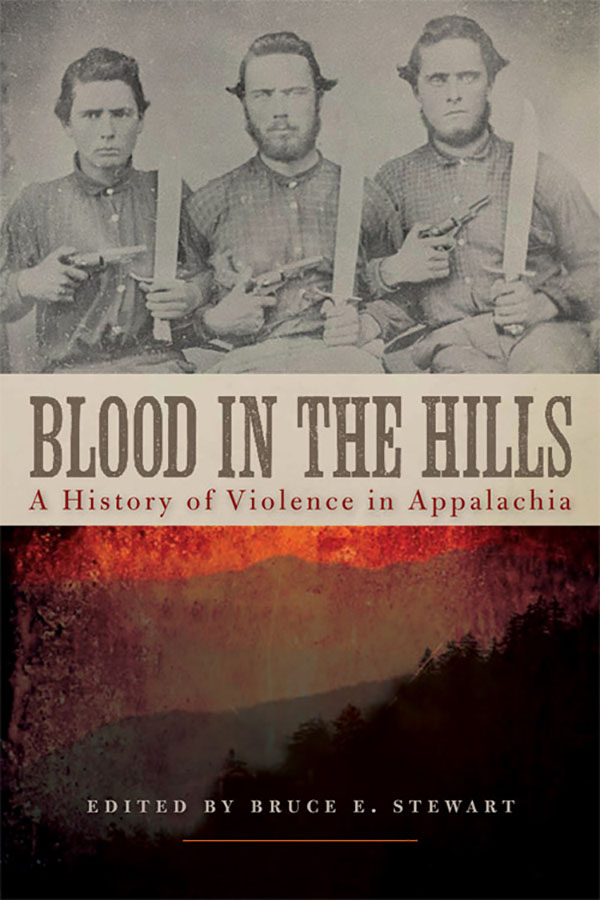BOONE, N.C. — “Blood in the Hills: A History of Violence in Appalachia,” which is edited by Dr. Bruce E. Stewart, associate professor in Appalachian State University’s Department of History, is now available from the University Press of Kentucky in paperback format.
The volume features essays from experts in political science, history and literature that question the supposedly innate brutality of the Appalachian people, examining cases within the region from the late 18th to early 20th century.
“Blood in the Hills” was originally published by the University Press of Kentucky in November 2011 and is part of the press’ New Direction in Southern History series.
The press’s website states, “Editor Bruce E. Stewart discusses aspects of the Appalachian violence culture, examining skirmishes with the native population, conflicts resulting from the region’s rapid modernization, and violence as a function of social control. The contributors also address geographical isolation and ethnicity, kinship, gender, class, and race with the purpose of shedding light on an often-stereotyped regional past.
“‘Blood in the Hills’ does not attempt to apologize for the region but uses detailed research and analysis to explain it, delving into the social and political factors that have defined Appalachia throughout its violent history.”
Dwight Billings, author of “Back Talk from Appalachia: Confronting Stereotypes,” said “the persistent myth of a culturally backward and inherently violent Appalachia” is challenged in “Blood in the Hills,” and the book’s essays “provide deep and critical insights into the role of violence in regional and national history and the political, economic, racial, and religious conflicts that engender it.”
Additionally, Daniel S. Pierce, author of “Real NASCAR: White Lightning, Red Clay, and Big Bill France,” offered commentary on “Blood in the Hills,” stating the book is “the first systematic exploration of the myths and realities of violence in the Southern Appalachian region. An important work for scholars and students of Appalachian history that will add much to the field.”
“Blood in the Hills” is available in hardback, paperback and e-book formats from the University Press of Kentucky, as well as Amazon, and is offered in paperback format by Barnes & Noble.
Edited by Bruce E. Stewart
2011
About Dr. Bruce E. Stewart
Stewart earned his M.A. in history from Western North Carolina University and his Ph.D. in history from the University of Georgia.
His areas of study include United States history and Appalachian history, and Stewart’s courses and publications emphasize issues within these fields.
“I am particularly interested in the role that class conflict has played in shaping American society,” he said. “My fascination with class ultimately led me to study Appalachia, a region whose residents have often protested against economic inequality. It has also encouraged me to view history from the ‘bottom up.’ As such, when teaching my courses, I combine top-down and bottom-up approaches to history, showing my students that people of all classes and backgrounds have shaped the past.”
Stewart is the author of “Moonshiners and Prohibitionists: The Battle over Alcohol in Southern Appalachia” (University Press of Kentucky, 2011) and editor of both “King of the Moonshiners: Lewis R. Redmond in Fact and Fiction” (University of Tennessee Press, 2009) and “Blood in the Hills: A History of Violence in Appalachia.”
His upcoming book, “Herman Husband’s World: A Life during the Age of the American Revolution,” examines the life of Herman Husband — farmer, author, preacher and leader of the Regulator Movement, an uprising of North Carolina colonists who opposed the taxation system of colonial officials in the late 1700s.
About the Department of History
The Department of History offers a broad curriculum in local, national, regional and world history at both the undergraduate and graduate levels, which encourages history majors to develop a comprehensive approach to human problems. The study of history is an essential part of a liberal arts education and offers valuable preparation for many careers, such as law, journalism, public history, public service and business, as well as in teaching and the advanced discipline of history. Learn more at https://history.appstate.edu.
About Appalachian State University
As a premier public institution, Appalachian State University prepares students to lead purposeful lives. App State is one of 17 campuses in the University of North Carolina System, with a national reputation for innovative teaching and opening access to a high-quality, cost-effective education. The university enrolls more than 21,000 students, has a low student-to-faculty ratio and offers more than 150 undergraduate and 80 graduate majors at its Boone and Hickory campuses and through App State Online. Learn more at https://www.appstate.edu.
What do you think?
Share your feedback on this story.





![How NCInnovation Is Rethinking Economic Development in North Carolina [faculty featured]](/_images/_posts/2026/02/rethinking-economic-development-600x400.jpg)








